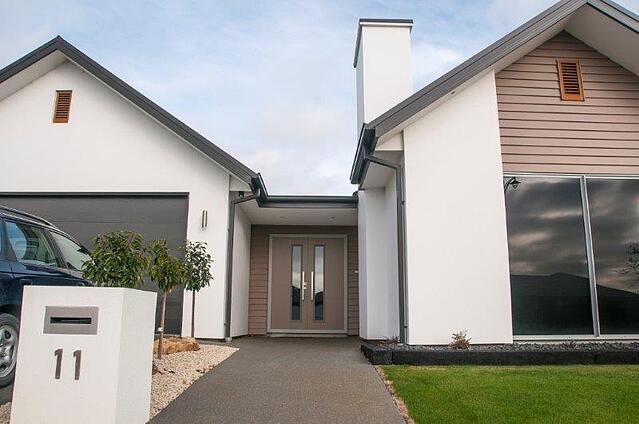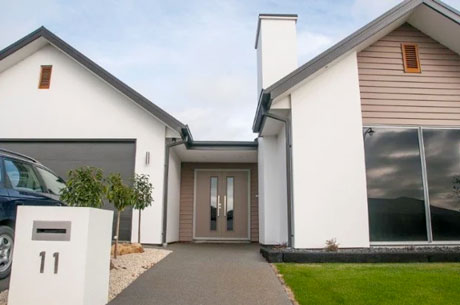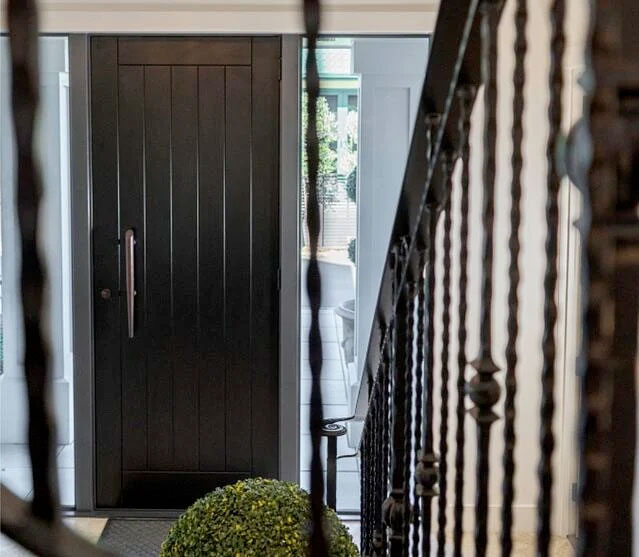COMPOSITE FIBREGLASS DOORS ARE THE CUTTING EDGE OF FRONT DOOR TECHNOLOGY
Whether you’re building a new home or renovating an older one, it’s surprisingly challenging to choose a new front door. Even if you have a clear idea of the style, colour, and window design you would like, there’s always the question of material. What should your front door be made out of? Many people like the weight and simplicity of a solid timber door, others feel more secure behind a metal door, but are these classic options really the best choice?
Modern industry is well known not only for innovative new designs but advanced new materials as well. While our ancestors may have been choosing from wood or metal doors for years, we have something new on the cutting-edge of construction technology: Composite fibreglass. This lightweight, incredibly durable, and energy efficient material is used in aviation and aerospace, car bodies, boats, electronics, wind turbines, windows, and of course, exterior doors.
Download The Complete Guide to Entrance Doors [Free E-Book]
Eco-Friendly in Every Way
One of the biggest persuasive arguments toward using fibreglass for almost everything is how incredibly eco-friendly it is. Most people wouldn’t assume this about a new fabricated material, but composite fibreglass front door can do amazing things for your power bill and contributes to the environment in its own little way. Many composite fibreglass doors are energy-star approved with a polyurethane foam core for excellent temperature and sound insulation and energy-efficient glass so that no matter how you want your door designed, no AC or heat will escape around the panes. They’re even designed to work well with weather-stripping for a perfect energy-efficient seal.
Of course, saving you money on your power bill isn’t the only way a composite fibreglass door can help the environment. Solid timber doors have been the definition of luxury and wealth for a long time but that’s also a lot of wood. Every composite fibreglass door installed in a home provides all the comfort and protection of a wood door without using up a tree.

Like Wood Without Rot
If you’ve been dreaming about a solid timber door, rest assured you’re not alone. Most homeowners like to stick with the traditional look and feel for their front door and you can’t get more traditional than wood. However, wood also has a lot of downsides that are easy to forget in all the excitement of choosing a new front door.
One thing we’re all familiar with is swelling. Wood is a natural, porous substance that responds to the environment and when it’s humid outside, your door will swell. This can cause it to stick in the frame and become difficult to open or stick out of the frame so that you have to fight to get it closed again. Unfortunately, the opposite is also true. When it’s cold and dry, your door will retract, sometimes far enough back to cause a gap in the weather stripping. When this happens, your home experiences a significant drop in energy efficiency.
Wooden doors have other downsides as well, particularly if they’re damaged without being repaired. Damp for too long or a compromised seal can result in rot and decay. Certain circumstances can even lead to insect infestation and the door being consumed by wood-eating pests. While these are extreme cases, they’re not unheard of.
Download The Complete Guide to Entrance Doors [Free E-Book]
Perfect Wood Mimic
As you might have guessed, composite fibreglass isn’t susceptible to any of these problems because it’s not a natural substance with the usual weaknesses. It doesn’t decay, insects can’t (and don’t want to) eat it, and it doesn’t even change size and shape in response to the weather. It can, however, be grooved and finished to be nearly indistinguishable from wood. With the right choice of finish and colour, you can have the look and feel of a solid timber door with none of the risks or hassle.
Like Metal Without Dents
For those who choose to not to go with wood or want a smooth modern appearance for their door, steel and other metal alloys are a popular choice. However, a surprising consequence of choosing a durable metal door is the dents. Anytime something heavy hits your door like moving furniture or even a rapidly swung toy, there will be a dent with essentially no way to bang it out. The older a metal door is, the less nice it looks because the dents and scrapes start to accumulate. Composite fibreglass has all the durability and weather resistance of a metal door, but it will never dent or buckle in response to an impact or climate change.
Optimizing Your Home Security
Finally, the last reason you should seriously consider a composite fibreglass door is security. While the appearance of your front door matters a great deal for your day-to-day life, the durability and invasion resistance properties of your door matter more on the rare occasion that someone might try to enter your home uninvited. Not only is a composite fibreglass door resistant to classic break-in attempts like a wood splintering crowbar, but it also provides superior connection to its frame.
The security of your front door relies quite a bit on the door frame which is usually what burglars target when trying to break in. The wood of a timber door has a certain ability to hold onto screws before they are ripped out and a metal door can only have a few screws where holes have been created. Composite fibreglass, on the other hand, has twice the screw-holding power of wood and you can attach it as completely as you need to in order to achieve optimal security for your home and front door.
Composite fibreglass is an incredible modern material that makes a wonderfully insulated, secure, and reliable front door. With the lowest maintenance requirements of any door material, the ability to almost perfectly mimic wood, and plenty of attractive designs to choose from you’re sure to find the perfect composite fibreglass door for your home.



